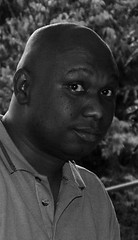
In today’s complex media landscape, ethical issues abound. Do you have a solid framework to know how to make the next ethical decision in your newsroom? Learn about the tools and techniques necessary to having a sound ethical strategy by applying for a three-week course in English on “An Introduction to Ethics,” taught by instructor Kayode James. The course will be offered from Feb. 25-March 17. This course is one of a three-course series hosted in collaboration with the Association of Caribbean Media Workers.
Journalists can apply to this course until Feb. 14, by 5 p.m. (Austin, Texas time). More details about the course can be found here.
This course is designed to teach journalists to approach ethical decision-making as a reasoning process that takes into account all aspects of a situation.
Specifically, students will learn about the five main ethical principles used in ethical analysis and how to apply them to varying situations, the process of how to make ethical decisions, and how to judge the ethicality of decisions taken by journalists and media organizations.

Kayode James is the instructor for this course. James teaches courses in media studies and journalism at COSTAATT’s Ken Gordon School of Journalism and Communication Studies. James has a decade of experience as a reporter for the Trinidad Guardian and Trinidad Express newspapers. He has worked as an editor for several print and online publications.
According to James, ethical decision-making in and outside of the newsroom entails a different process.
“Many journalists approach ethical decision-making as something personal, and base their choices on emotions, instinct, expediency and other factors that prove less than valid,” James said.
“Caribbean journalists aren’t always given a solid idea of how crucial their role is to the development of this region,” he added. “This lack of awareness, coupled with the increasingly commercial demands of media houses, has clouded the professional values that once acted as a moral compass for Caribbean reporters and broadcasters. A strong ethical code keeps journalists focused on their responsibilities to wider society, the profession itself, and their employers.”
Students who are selected into the course will pay a fee of US$45 payable to ACM.
This course is open to journalists from all media industries and backgrounds. The course is ideal for young professionals who have just entered the field.
This online course is divided into weekly modules containing multimedia presentations and links to online resources. Most of the course activities can be followed in the days and times most appropriate for each student. Exercises, online discussions and additional assignments will also be part of the curriculum. Participants can expect to spend 6-10 hours per week on the course.
The course will be taught using the Knight Center’s distance learning platform that has benefited more than 7,000 journalists from Latin American and the Caribbean, since it was created in the fall of 2003. On completion of the course persons will receive a joint Knight Center/ACM certificate of participation.
The Knight Center for Journalism in the Americas was created in 2002 by Professor Rosental Alves at the University of Texas at Austin School of Journalism, thanks to a generous donation from the John S. and James L. Knight Foundation. The Center also receives contributions from other donors, including the Open Society Foundations and The University of Texas at Austin. The Center’s main goal is to help journalists in Latin American and the Caribbean improve the quality of journalism in their countries.